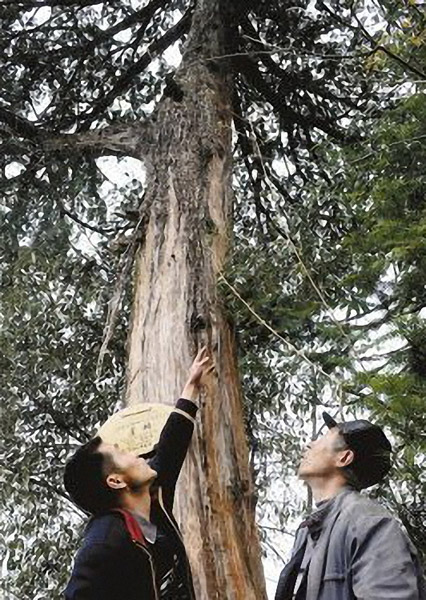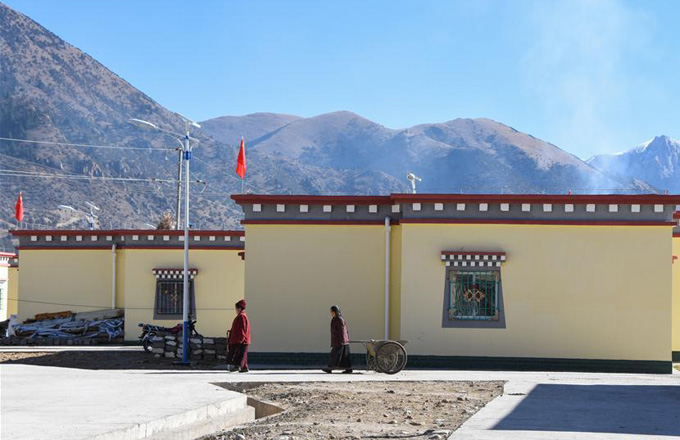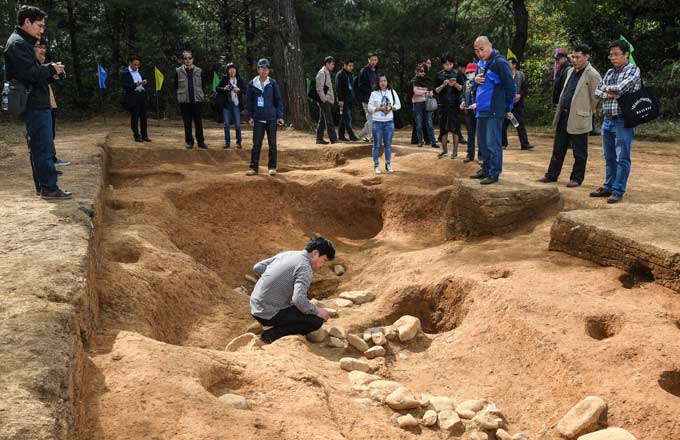Trees once believed to be extinct making comeback
 |
|
Tree protector Chen Yaoquan tells his son about an ancient Sichuan thuja tree in a Chongqing nature reserve. [Photo by SHI ZONGWEI/CHINA DAILY] |
Sichuan thuja tree seedlings the size of a hand received a spray of water under a dozen shower nozzles at a plant nursery in Chengkou county. Workers said 40,000 of the seedlings had been raised at the breeding base and will be transplanted to the wild when they get bigger.
The Sichuan thuja, a member of the cypress family, is native to Chengkou. Specimens were first collected by French missionary Paul Guillaume Farges in 1891. A hundred years later, the trees appeared to have died off, as none were spotted in the wild.
In 1998, the International Union for Conservation of Nature announced that the thuja tree was extinct. The Chinese government removed it from its list of protected wild plants.
The next year, however, after a six-month search, a team looking for wild plants rediscovered the thuja in Chengkou. After verification, the conservation union adjusted the tree's status from extinct to endangered.
On the steep ridges of the Daba Mountains, about 3,000 of the plants struggled to survive the harsh natural environment.
Because of its scarcity and unique apple-like fragrance, items made from the thuja at one time could be sold for twice the price of gold, by weight, which led to illegal logging.
A national nature reserve and breeding base were established in the Daba Mountains to protect the species.
According to Zhang Shiqiang, director of the nature reserve, human activities have since been reduced in protected areas to create a good environment for the tree. Scientific research on artificial breeding has also been stepped up to expand the trees' population.
Meanwhile, 25 monitoring stations have been built with infrared cameras and global positioning systems for regular data collection, providing reliable scientific data for botanists.
Over the past two years, 200,000 seedlings were transplanted in the tree's native habitat, which has expanded by 43.3 hectares thanks to afforestation efforts.
"The Sichuan thuja is a gift that nature gave to the world. We must strengthen our protection of the species and make sure it will not approach extinction again," Zhang said.
Xinhua





















